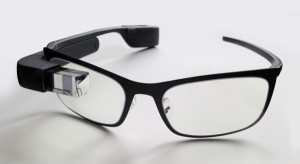 When Google said on Thursday it would end its Explorer program for Glass and stop selling the current version to consumers, a few premature obituaries were written for the head-worn device.
When Google said on Thursday it would end its Explorer program for Glass and stop selling the current version to consumers, a few premature obituaries were written for the head-worn device.True, Glass has struggled to find its place in the mainstream. Even at last week’s International CES, a haven for technophiles, we saw very few attendees sporting Glass, while a year before they were a common sight on the show floor.
“Google Glass is a great example of good product looking for a problem,” said Ian Campbell, CEO of Nucleus Research.
But make no mistake: Glass isn’t going away – not without more of a fight. While it’s struggled to find support among consumers, some businesses have been highly receptive to the electronic eyewear, and the next iterations of Glass might suit them even better.
“The future of Glass is that it becomes a tool for how you do work,” said Det Ansinn, founder of BrickSimple, which develops workplace apps for Glass and other devices.
Google may have been caught off guard by the level of interest among business users, he said. Hospitals and factories aren’t the kinds of places Google normally calls home, but surgeons and engineers are among the users that have warmed the most to Glass.
In the public sphere, the device raised hackles because of the way it can inconspicuously capture audio, pictures and video. In a few cases, people were even assaulted for wearing it. But in the workplace, those cultural issues present less of a barrier.
There were also few incentives for consumers to don the headgear. Glass doesn’t provide people with information they can’t already look up on their smartphones, Campbell said.
“The apps weren’t there to make it compelling enough,” he said. He doesn’t see a time when there’s broad acceptance of people walking down the street with Glass on their faces.
Analyst Ben Bajarin of Creative Strategies says he never believed Google wanted to play in the hardware side of the market. It wanted to see how such a product would be received and what developers would do with it.
“Sometimes to learn these things you have to take something to market,” he said. “Google may still do something here, but they’ll take the time to refine it.”
Campbell and others think Glass has a strong future in the enterprise. Engineers fixing industrial equipment can benefit from a hands-free computer that puts information directly in their field of vision. And surgeons have filmed their operations for distance learning.
Google said it is moving Glass out of its Google X labs and into a standalone product division. The head of that division will report to Tony Fadell , who runs Nest Labs, the smart-home company Google bought last year.
“Google, by doing this, confirms that Glass isn’t dead,” said Kyle Samani, CEO of Pristine, which develops Glass apps for healthcare, education, and other areas.
He praised Google for handing oversight of Glass to Fadell, a former Apple executive who helped develop the iPod. He could help turn Glass into a product that everyday consumers want to use, and in that sense its future as a consumer device might not be over.
A spokesman for Strava, which makes fitness apps for cyclists and runners, said Strava is “still just as excited to work with Google as we were last month or when we first started developing apps for Glass.”
Still, developers are crucial to the life of computing platforms, and some will think twice about Glass if it becomes a niche product, Campbell said. “They may do the mental maths and realise the economics don’t make sense.”
It’s unclear if future versions of Glass will be offered to consumers, or what support its existing Explorer users will continue to receive. The company didn’t respond to questions about those topics.
For Ansinn of the apps company BrickSimple, however, Thursday’s news reaffirmed Google’s commitment to Glass, after the low attendance at September’s Glass developer conference had some concerned about its future.
“I’m excited as much as I have some trepidation,” he said. “I’m happy that Google is seeing Glass through.”





